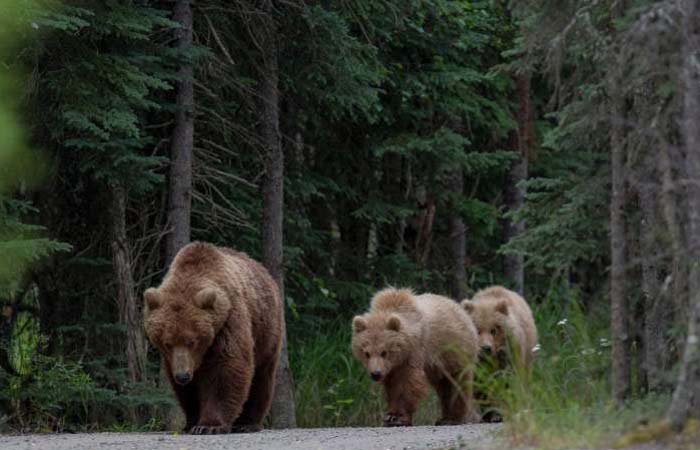New York: As humans have modified natural landscapes in a variety of ways — such as roads, buildings, bridges and fences mammal species are finding difficulty in moving normally as it creates physical barriers for them, researchers said.
A new study, published in the journal Science, describes the extent to which highly modified landscapes impede the movement of 57 land-based mammal species from around the world.
On an average, these mammals cover about a third to half of the distance they would otherwise travel in the wild, unmodified landscapes, the study said.
“The magnitude of the effects we observed was really surprising. The reduction of movement on a 10-day scale, that percentage drop was just phenomenal. In some cases, we saw a tenfold decrease in movement,” said co-author of the study, William Fagan, Professor at the University of Maryland.
“This is after accounting for other factors we already know to be important to animal movement, such as body size, diet and available food resources.”
In this study, the researchers collated GPS-tracked movement data from 803 individual animals representing 57 mammal species, including lions, from around the globe.
They compared these movement data to a metric called the Human Footprint Index, which assigns landscapes a rating that ranges from zero (untouched natural areas) to 50 (dense urban cityscapes).
The researchers’ analysis primarily focused on areas with a rating of 36 or higher, comparing these data with baseline information from areas with an index of less than two.
The team also assessed each species’ movements on a variety of time scales ranging from an hour to 10 days.
On shorter time scales of less than a day, human-modified landscapes did not significantly affect the movement of most species.
However, for observations ranging from a day to 10 days, most species reduced their travel distances by an average of at least half.
But the research also suggests another, somewhat paradoxical reason that mammals move less in human-dominated areas — resources such as food and shelter can be more plentiful.
“Our research suggests that two things are going on. First, the world isn’t as free to move around in. But for many animals it’s also less necessary to range widely because humans can indirectly provide food and protection from large predators,” said co-author of the study, Eliezer Gurarie, a principal faculty specialist at the University of Maryland.
While some species can cope with reduced movement in less wild landscapes, the researchers noted that movement is also important for the ecosystem as a whole.
Restricted movement can disrupt food webs, curtail the distribution of plant seeds and interfere with the transport of nutrients contained in animal waste and prey kills.
IANS

